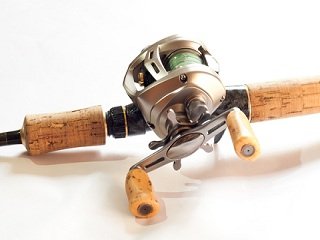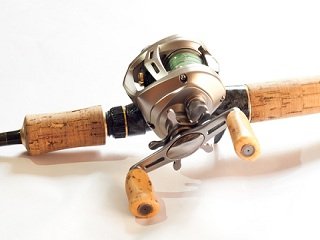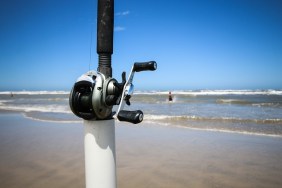 During my time working at a fishing retailer, part of my job description included assessing—and sometimes even fixing—common issues that customers had with their tackle. This included replacing broken rod tips, reel handles, and even taking apart reels to clean and/or repair them. One of the most common issues when it came to baitcast reels was a particular clicking or high-pitched noise that occurred during the case. If this is an issue you’re currently dealing with, keep reading for some insight on how to remedy it.
During my time working at a fishing retailer, part of my job description included assessing—and sometimes even fixing—common issues that customers had with their tackle. This included replacing broken rod tips, reel handles, and even taking apart reels to clean and/or repair them. One of the most common issues when it came to baitcast reels was a particular clicking or high-pitched noise that occurred during the case. If this is an issue you’re currently dealing with, keep reading for some insight on how to remedy it.
Most of the time, people fear this problem concerns the bearings, but the bearings aren’t the cause. In fact, when bearings go bad, they don’t really make noise, but will rather create an internal, rough clicking. Commonly, the noise occurs when people are actively using the reel, and tends to get worse as they do so. Noises like that are caused by something rubbing a surface, and in this case, this means the reel’s brakes.
Reels with centrifugal brakes have plastic or fiber tabs that rub the interior of a brake ring. These have to be lubricated or they’ll end up rubbing against a dry surface, and make a noise. Not only is this noise created, but such an issue reduces casting distance, as well. When a dry plastic tab rubs a dry brake ring, the friction is a lot more than when it’s oiled, and the ends of the tabs can even melt.
If you have a reel with centrifugal brakes, it’s good practice to wipe some reel oil around the inside of the brake ring at least once a month. A few drops on a cotton swab is the way to do it. Also, it’s smart to get into the habit of opening the side cover to oil your brakes frequently. Furthermore, while having your reels serviced once a year is a great thing, they will still need some attention from you between services. It’s a good idea to keep a small bottle of reel oil and a tube of grease along with some cotton swabs as an emergency service kit, or you can purchase a reel cleaning kit to keep on hand.
Following these simple steps can help maintain optimum reliability from your reels between services. Keeping them clean and lightly oiled will also prevent the need to replace parts during annual servicing, for which your wallet will thank you. If you’ve been noticing a high-pitched noise while using your reel, it may be time to check your brakes. Keep them oiled and make it a habit of doing so frequently, and you’ll notice a longer shelf life on your reels.








